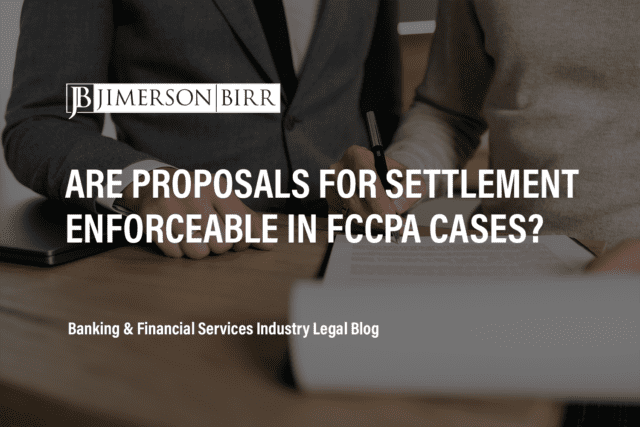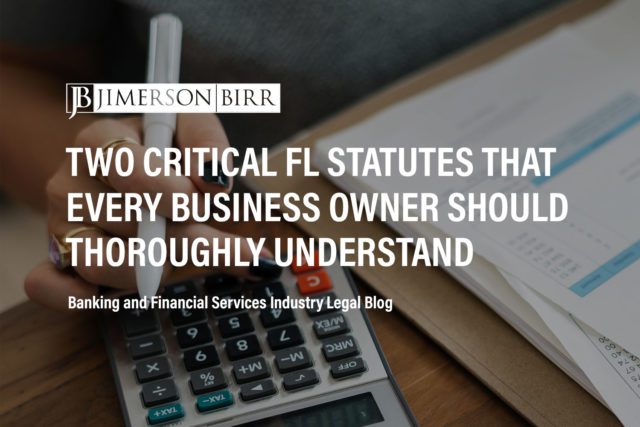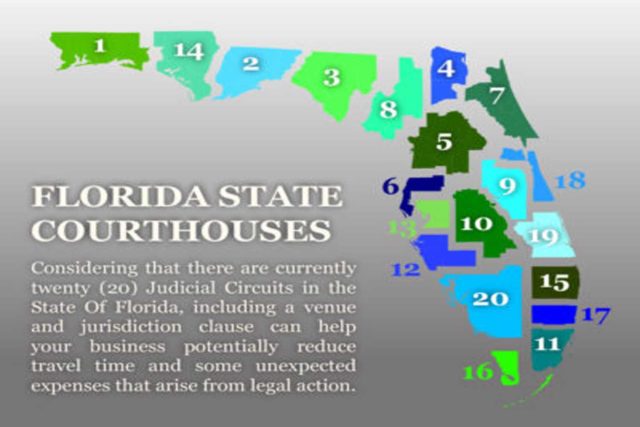In Florida, which laws and regulations apply to FDCPA compliance?
The Fair Debt Collection Practices Act (FDCPA) is primarily governed by federal law, specifically 15 USC § 1692 et seq. The FDCPA sets forth rules and restrictions on debt collection practices to protect consumers from abusive, deceptive, or unfair practices.
In addition to federal regulations, Florida has enacted the Florida Consumer Collection Practices Act (FCCPA) (Florida Statutes §§ 559.55-559.785). The FCCPA mirrors and expands upon the FDCPA, providing additional protections for consumers against debt collectors’ misconduct.
While both the FDCPA and FCCPA apply to debt collectors, the FCCPA also applies to original creditors, a distinction that provides broader protections for Florida consumers. In addition, violations of FDCPA or FCCPA can result in legal consequences, including statutory damages, attorney’s fees, and potential injunctive relief.
Need help regarding FDCPA defense litigation? Schedule your consultation today with a top FDCPA defense litigation attorney.
What FDCPA compliance issues commonly lead to litigation?
The following issues commonly lead to FDCPA litigation:
- Harassment or abuse: Debt collectors may engage in conduct considered harassment or abuse, such as using obscene language, making excessive phone calls, or threatening violence. Such behavior is prohibited under the FDCPA and FCCPA and can lead to litigation.
- Misrepresentation or deceit: Debt collectors may provide false or misleading information to consumers, such as misrepresenting the debt owed or falsely claiming to be an attorney. These practices are unlawful under the FDCPA and FCCPA and can result in legal action.
- Unfair practices: Debt collectors cannot engage in unfair practices, such as collecting fees not authorized by law, making unauthorized withdrawals from a consumer’s bank account, or threatening to seize property without proper legal authority.
- Improper communication: Debt collectors must adhere to strict guidelines when communicating with consumers, including providing the required validation notice, not discussing debt with third parties, and respecting a consumer’s request for no further contact.
- Failing to validate the debt: Debt collectors must validate the debt upon request by providing the consumer with information about the original creditor and the amount owed. Failure to provide this information can lead to litigation under the FDCPA and FCCPA.
- Suing on time-barred debt: Debt collectors may attempt to sue on debts beyond the statute of limitations. The FDCPA and FCCPA prohibit this practice.
When a set of facts is appropriate for FDCPA defense litigation, there are many paths a claimant may take. We are value-based attorneys at Jimerson Birr, which means we look at each action with our clients from the point of view of costs and benefits while reducing liability. Then, based on our client’s objectives, we chart a path to seek appropriate remedies.
To determine whether your unique situation may necessitate litigation, please contact our office to set up your initial consultation.
What are effective strategies to maximize FDCPA compliance?
Consider implementing the following measures:
- Develop clear policies and procedures: Establish comprehensive guidelines that adhere to the FDCPA and FCCPA requirements, and ensure comprehensive training on these policies.
- Regularly update staff training: Conduct ongoing training sessions to inform staff about the latest regulatory changes and case law developments.
- Monitor communication practices: Regularly review and evaluate employee communication methods, ensuring compliance with FDCPA and FCCPA regulations.
- Implement a robust record-keeping system: Maintain accurate and up-to-date records of all debt collection activities, including communication logs, payment histories, and validation notices.
- Conduct internal audits: Periodically review debt collection practices for compliance, identifying potential areas of improvement and addressing any identified issues promptly.
Please contact our office to set up your initial consultation to see what actions or defenses may be available for your unique situation.
Frequently Asked Questions
- Are all debt collectors subject to the FDCPA and FCCPA?
The FDCPA applies to third-party debt collectors, while the FCCPA covers third-party debt collectors and original creditors. However, certain exceptions may apply, such as for government employees collecting debts on behalf of a government agency.
- Can a consumer stop a debt collector from contacting them?
Yes, consumers can request that debt collectors cease communication by providing a written notice. Under the FDCPA and FCCPA, debt collectors must honor this request, though they may still pursue legal action to collect the debt.
- What remedies are available for consumers who have experienced FDCPA or FCCPA violations?
Consumers can file a lawsuit against debt collectors who have violated the FDCPA or FCCPA. The consumer may win actual damages, statutory damages, attorney’s fees, and court costs if successful. Additionally, the court may order injunctive relief to prevent further violations.
Have more questions about an FDCPA defense-related situation?
Crucially, this overview of FDCPA compliance does not begin to cover all the laws implicated by this issue or the factors that may compel the application of such laws. Every case is unique, and the laws can produce different outcomes depending on the individual circumstances.
Jimerson Birr attorneys guide our clients to help make informed decisions while ensuring their rights are respected and protected. Our lawyers are highly trained and experienced in the nuances of the law, so they can accurately interpret statutes and case law and holistically prepare individuals or companies for their legal endeavors. Through this intense personal investment and advocacy, our lawyers will help resolve the issue’s complicated legal problems efficiently and effectively.
Having a Jimerson Birr attorney on your side means securing a team of seasoned, multi-dimensional, cross-functional legal professionals. Whether it is a transaction, an operational issue, a regulatory challenge, or a contested legal predicament that may require court intervention, we remain tireless advocates at every step. Being a value-added law firm means putting the client at the forefront of everything we do. We use our experience to help our clients navigate even the most complex problems and come out the other side triumphant.
If you want to understand your case, the merits of your claim or defense, potential monetary awards, or the amount of exposure you face, you should speak with a qualified Jimerson Birr lawyer. Our experienced team of attorneys is here to help. Call Jimerson Birr at (904) 389-0050 or use the contact form to schedule a consultation.

We live by our 7 Superior Service Commitments
- Conferring Client-Defined Value
- Efficient and Cost-Effective
- Accessibility
- Delivering an Experience While Delivering Results
- Meaningful and Enduring Partnership
- Exceptional Communication Based Upon Listening
- Accountability to Goals











